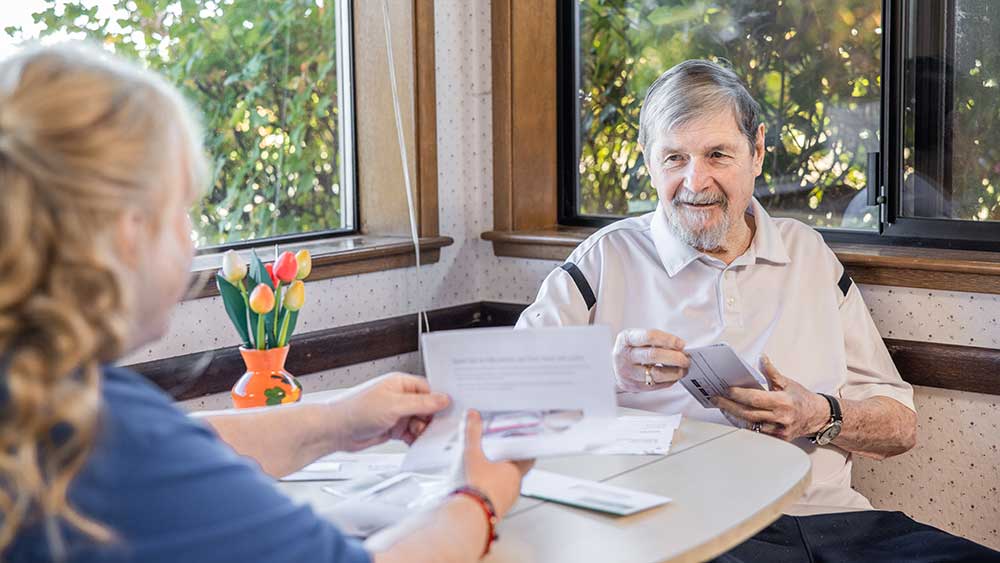

Senior Scams: Tips for How To Avoid Them During the Season of Charitable Giving
Nothing is quite as fragile as trust. A violated trust concerning your personal assets can seriously hurt not only your pocketbook but your emotional well-being as well. If you are aging in place, you may be especially vulnerable to financial predators and scam artists who act like they have your best interests at heart when, in reality, they don’t. And, sadly, the perpetrators of fraud may not always be strangers but friends or family members. Protecting your holdings doesn’t mean you cannot trust anyone, but it does mean being on guard about how you spend your money and who has access to your personal financial accounts and records.
Tips To Avoid Senior Fraud and Being Cheated in Charitable Giving
With the elderly population ever growing, seniors are increasingly targeted by thieves, which is why it is important older folks follow consumer advocate guidelines about the “do’s and don’ts” for safe monetary transactions and financial habits. The holiday season calls for extra vigilance because it usually means an upsurge in charitable donation requests. Just be aware that not every cause, no matter how much the appeal touches your heart, is legitimate. Think with your head, not your heart.
When it comes to charities, the AARP, National Council on Aging, and Federal Trade Commission recommend you only do business with reputable, established organizations whose track records can be verified.
There are consumer advocacy organizations, such as BBB Wise Giving Alliance, Charity Navigator and CharityWatch, that issue reports and ratings about how charitable organizations are spending the donations they receive.
These tips will also help guide you:
- Avoid charities that appear to be brand new. They may be legitimate, but it’s better to be safe than sorry. Stick with a sure thing rather than risk your money on a fly-by-night organization.
- Never donate with cash, a gift card or a wire transfer because if you are being scammed, those payouts are untraceable and unrecoverable. Only pay by credit card or check, and then only after confirming that the organization or cause is legitimate.
- A telltale sign a scammer is trying to swindle you is being rushed or pressured into making a donation or purchase decision. Be aware that some scammers may try to trick you into paying them by thanking you for a donation or an order that you never made.
- Don’t hurry into any donation or purchase that you’re not completely certain of. Take your time. It’s your money. It’s your decision to make.
- Remember that out-of-state, even out-of-country scammers can make it appear they are calling you from your local area code.
- Sign up for the “Do Not Call” list and take yourself off multiple mailing lists. Stop unwanted sales calls by registering your phone number with the National Do Not Call Registry online or by calling them at 1-888-382-1222.
- Ask for and make a note of the marketer’s name, business identity, telephone number, street address, mailing address, and business license number before you transact business.
- Don’t accept on face value that your contribution or purchase is tax deductible. The IRS’s tax-exempt organization search tool tells you if what you paid is tax deductible or not. Another resource to check with is your state charity regulator. Most states require the charity or its fundraiser to register to ask for donations.
Protect Your Money at All Costs
Charitable fraud is not the only threat to your money. There are unscrupulous solicitors and telemarketers looking to take advantage of you. Here are some general tips to help protect you:
- It’s OK to say no to or hang up on telemarketers. Or you can tell them, “I never buy from (or give to) anyone who calls or visits me unannounced. Send me something in writing.”
- Be skeptical of all unsolicited offers received by phone, social media, email, text or postal mail.
- Never share a credit card ora bank account number, much less your Social Security or Medicare number, with anyone who initiates a call or correspondence with you. Protect these numbers as if they were gold. Do not allow anyone else to use them. Keep your accounts and records in a secure place that only you or a trusted friend or family member can access.
- Be wary of salespeople trying to sell you something they claim will be paid for by Medicare.
- Review Better Business Bureau and consumer watchdog groups’ ratings of companies to catch any red flags.
- Confirm phone numbers, addresses and other details from the website of the organization contacting you or the company you are thinking of making a purchase with. Think before you click on a link to donate or purchase online. Verify that the site or page is secure. Make sure you know who is receiving your money.
- Keep a record of all your donations and purchases. Review your statements closely to make sure you’re only charged the amount you agreed to and that you’re not signed up to make a recurring donation or purchase.
- When vetting an organization online, search its name online using the company name plus a term like “complaint,” “review,” “rating” or “scam.”
- If anything makes you uncomfortable or you can’t get a straight answer, end the communication or transaction.
- Don’t let postal mail sit in your home mailbox for more than a day because thieves target mail drop hoping to acquire sensitive financial information.
- Use direct deposit for any checks you receive.
- Monitor your credit report yearly and check on any unusual or incorrect information.
What To Do if You Suspect You’ve Been Scammed
If you know or suspect that you are a victim of a scam, don’t keep it to yourself because inaction might only make things worse. Here’s what to do:
- Call your bank and/or credit card company to stop payment.
- Cancel any debit or credit cards linked to the stolen account.
- Reset your personal identification number(s).
- Report scams to the Better Business Bureau, Federal Trade Commission and law enforcement. Alert peers, family and friends to be on the watch.
Don’t feel bad about protecting your money. It’s yours. You deserve to hold onto it until you’re ready to part with it. Be smart about your money and you’ll keep more of it.
Online resources to visit:
https://seniorplanet.org/avoid-charity-scams/
https://consumer.ftc.gov/features/how-donate-wisely-and-avoid-charity-scams
https://www.ncoa.org/article/protection-from-senior-scams







